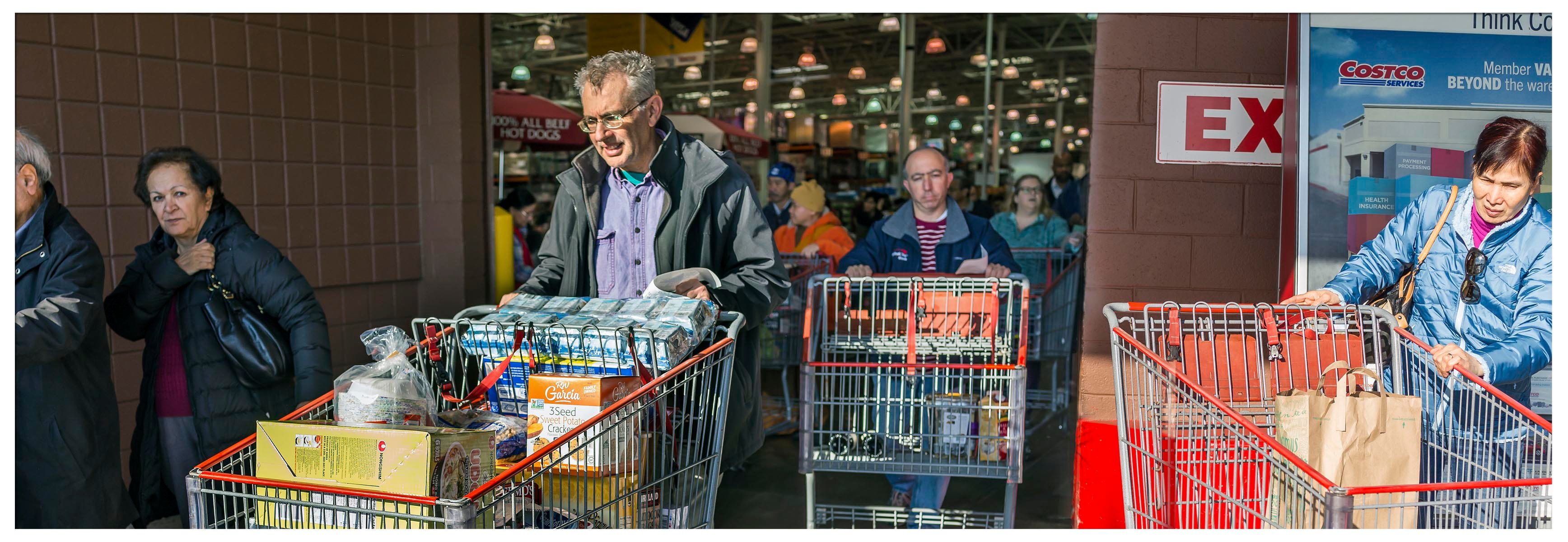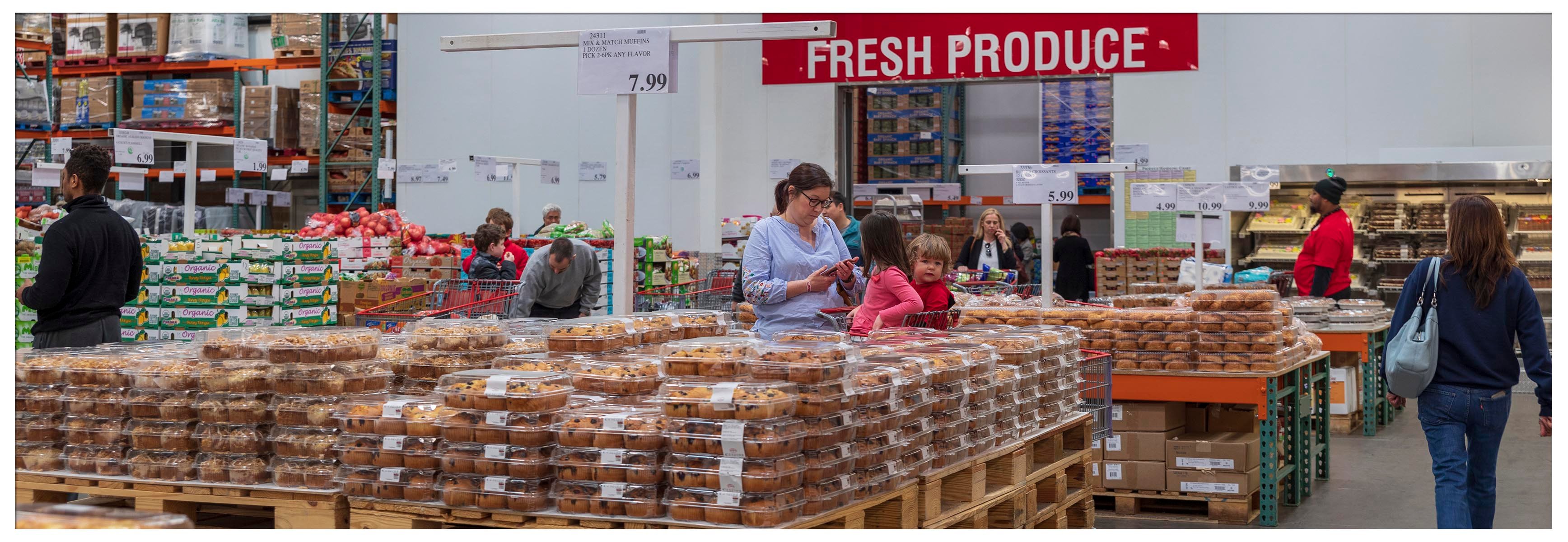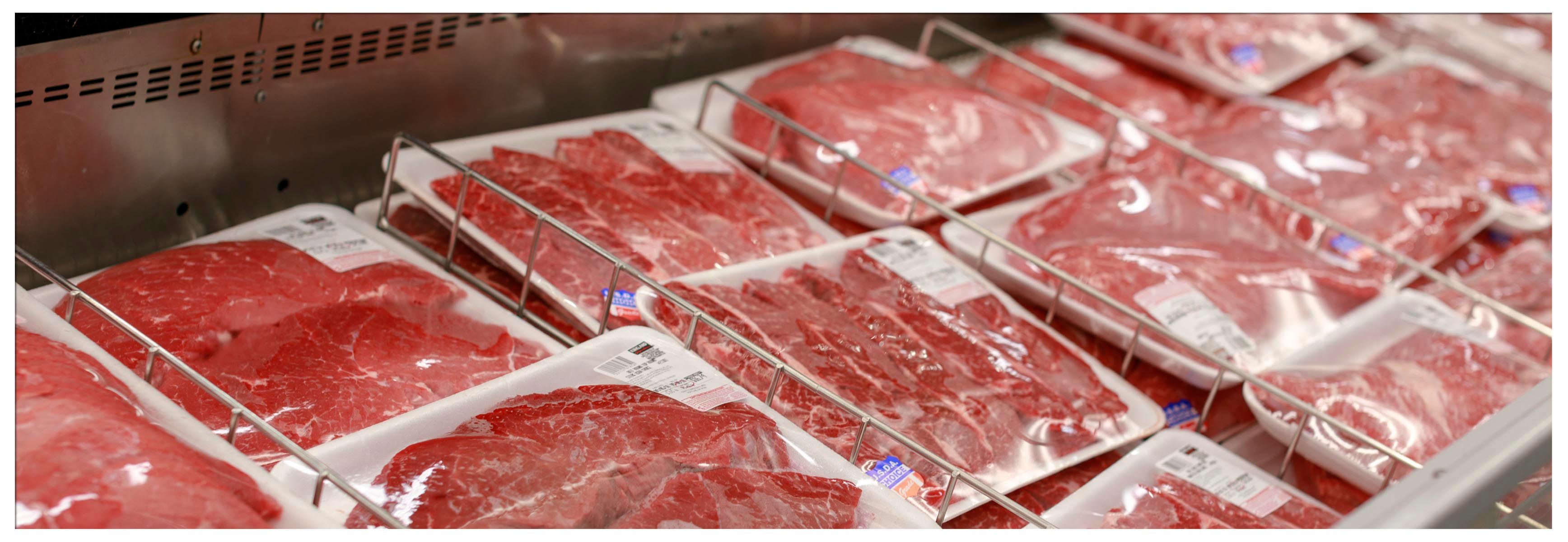
Warehouse vs. Supermarket
When you break it down to basics, whether or not warehouse club shopping will save you money depends on you and your shopping habits. The big benefit of warehouse clubs is that they keep their markup low—sometimes as low as 14% compared to up to 25% at traditional supermarkets. But to offset that lower markup, they have to charge an annual membership fee that's usually between $45 and $55 and deliver products in enough bulk to balance the margin. So in order to make shopping there worth your while, you need to be able to save more on purchases each year than it costs you in membership.
Keep in mind that while their overall markup may be higher, supermarkets frequently offer steep discounts on certain products, with the option to apply coupons regularly. So savings depend on what you need and when. You can also consider the bonuses that come with a warehouse club membership—like deals on gas, tires, glasses, prescriptions, and travel. If that fits into your lifestyle, it could help make a membership worth it.

Bulk vs. Daily Items
Buying in bulk can save you big if the price is right. Many of the one-off purchases you could make at a warehouse club (think appliances, clothing, kayaks, cars) get a nice kick when it comes to savings. The looming reality is that you quite often save on something you might not otherwise be buying. Instead, you could be shopping sales at appliance stores, or bargaining a seller down on Craigslist. But those not so frequent purchases might also have you shelling out extra cash at a warehouse store that often has a more narrow selection than some of the specialty shops.
When it comes to buying in bulk, you want to be sure you're paying attention to the price per pound or unit in comparison to food co-ops or traditional supermarkets. It's all very well and good to grab 50 pounds of flour for $10. When you realize that you are only baking a batch or two of cookies, you will have to buy a storage solution out of your savings. Likewise, you can get 360 OTC generic Benadryl pills, but they will probably expire before you have used 1/3 of them. Sometimes, when you do the math, you find out it's not really saving you money.

Perishables vs. Stockables
It can seem like a great idea to grab as much food as you can at a great price. But if you have a small household or it's just you, that 5 pounds of fresh spring salad mix you bought at a low price will wind up being wasted money when you have to toss half of it.
Look at the deal on NY strip steaks and realize that you will eat one of the 5 of them tonight and then freeze or vacuum pack the rest. You just dropped a more considerable sum on what turns into a $5 steak for dinner over the next few weeks. Being able to leverage the bulk over time will save you money in the long run, but it does take planning and discipline.
Maybe you think that canned goods would be a steal at warehouse clubs. They certainly aren't perishable, so there are no worries about them going bad. But you can often find better deals with store brands on sale at supermarkets, without having 18 cans of black beans in the cupboard. So again, you'll want to consider unit price or price per pound when you're contemplating your purchases.

It's All in the Habits
Ultimately, it all comes down to you. Does your lifestyle match up well with buying in bulk? Do you live close enough to a warehouse club to justify the drive? Will you use the food you bought in bulk? Or do you need to take your shopping one or two days at a time?
At the end of the day, it's up to you to decide whether or not the benefits of a warehouse club membership are worth the cost. But either way, trying to stretch your food dollars already puts you on the road to savings. If you're not really interested in the big-box experience, try an option like Subscribe and Save, from Amazon. Finding what's right for you and your family is key.
If you enjoyed this blog, you might enjoy these other related blogs:





